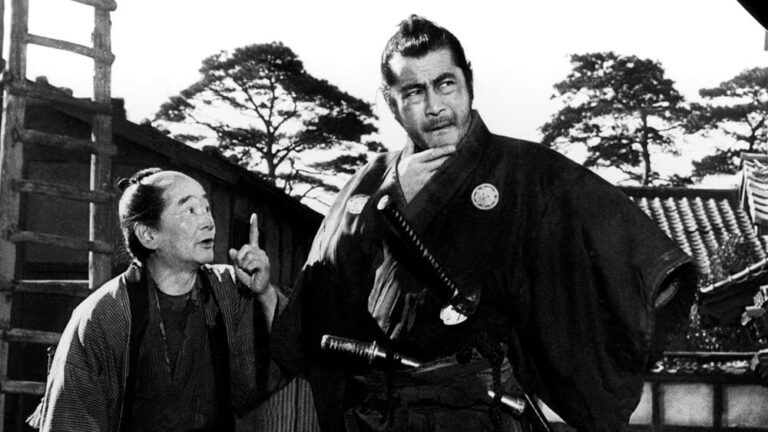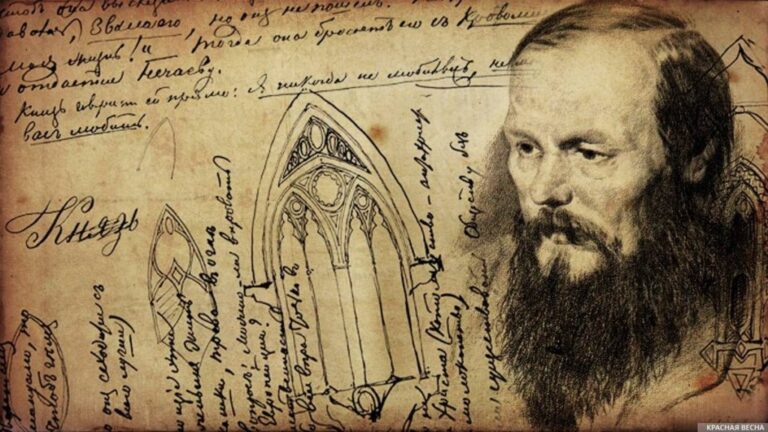Science fiction isn’t just about aliens and space battles. It’s about confronting the future, grappling with technology, and asking timeless questions about humanity. Whether you’re a seasoned sci-fi fan or just starting your journey into speculative fiction, these ten essential sci-fi books offer insight, thrills, and unforgettable storytelling. Here’s why every man should read them.
Samurai films have long captivated audiences with their blend of cinematic beauty, unflinching combat, and the stoic philosophy of bushidō—the samurai code of honor. For men who appreciate stories of loyalty, sacrifice, and hard-earned respect, samurai cinema offers some of the most powerful tales ever put to screen. Here’s a list of the best samurai movies that blend action, drama, and masculine intensity in unforgettable ways.
Nothing sets the mood for a camping or hiking trip like watching a group of adventurers (or unfortunate souls) navigate the unknown. Whether you’re gearing up to summit a peak or just roast marshmallows under the stars, these movies will hype you up, spook you just enough to double-check your gear, and remind you why nature commands respect.
Here’s a list of 10 essential wilderness-themed movies—featuring everything from survival grit to supernatural terror:
We love a good remake—when done right, it breathes new life into a classic story. But sometimes the source material gets buried under the fame of the newer version. Here’s a look at popular films that borrowed heavily from lesser-known predecessors, how they compare, and why the originals deserve a spot on your watchlist.
David Fincher’s Fight Club (1999), based on Chuck Palahniuk’s novel, is often interpreted as a scathing critique of consumerism and modern masculinity. However, beneath its anarchistic themes lies a deep psychological exploration of Carl Jung’s concept of the shadow—the unconscious, repressed aspects of the self that individuals refuse to acknowledge. The film provides a gripping portrayal of a man’s confrontation with his own shadow, manifesting in the form of Tyler Durden, and illustrates the dangers of both ignoring and embracing it too fully.
Few novels have had the enduring impact of Fyodor Dostoevsky’s Crime and Punishment. First published in 1866, this literary masterpiece has transcended its era to become a timeless exploration of the human psyche, morality, and the complexities of justice. While some readers may find the prospect of diving into a dense, Russian novel intimidating, the rewards are well worth the effort. Here’s why Crime and Punishment should be on everyone’s reading list.
Few television shows capture the imagination and adrenaline-fueled excitement of military history quite like SAS Rogue Warriors. This gripping series, produced by the BBC, offers a raw and unfiltered look at the creation of the Special Air Service (SAS), one of the world’s most elite and secretive military units. With its combination of historical authenticity, intense action, and profound exploration of camaraderie, SAS Rogue Warriors stands out as the ideal TV show for men who crave stories of bravery, resilience, and ingenuity.
When I was a child, my father was the most masculine man I knew, it may seem like a cliché to say that but it was true. While other fathers were socializing in the pubs and generally looking like adult versions of boys, my dad would take us fishing and hunting or have us out in the garage while he took apart and rebuilt car engines. So it was no surprise when I went through his library and found a full collection of Wilbur Smith novels. These epic adventures reflected what it meant to be a man.
1984 by George Orwell stands as one of the most important novels of the 20th century. Published in 1949, it is a dystopian tale that imagines a future where government surveillance, mind control, and the erosion of personal freedoms are taken to an extreme level. The novel has been widely interpreted as a critique of totalitarian regimes, particularly the Soviet Union and Nazi Germany, yet its themes resonate today in ways that Orwell could never have predicted. Here’s why everyone should read 1984 at least once in their lifetime:
1. A Warning About Totalitarianism
At its core, 1984 is a chilling portrayal of a world under a totalitarian regime. The government, led by the omnipresent Big Brother, controls every aspect of life. There is no freedom of thought, no privacy, and dissent is brutally suppressed. Through the character of Winston Smith, Orwell demonstrates how such a system strips individuals of their humanity.
While 1984 was originally written in the shadow of Stalinist Russia, its warning remains timeless. The novel shows how power can corrupt, and how unchecked authority can lead to unimaginable oppression. It is a reminder to be vigilant against any government or institution that seeks to erode our freedoms and control our thoughts.
2. The Power of Language
One of Orwell’s most insightful ideas in 1984 is the concept of “Newspeak,” a language created by the regime to eliminate words that might allow rebellious thoughts. The idea is simple but profound: if people don’t have the words to articulate dissent, they won’t even be able to think it. The novel demonstrates how language shapes thought, and how controlling language can be a way of controlling reality itself.
In our modern world, where political rhetoric is often used to manipulate public opinion and where media can sometimes distort reality, 1984 serves as a reminder of the power of language. It encourages readers to be critical of the words and narratives presented to them, and to protect the integrity of language as a tool for truth and freedom.
3. Surveillance Society
One of the most famous aspects of 1984 is the idea of constant surveillance. “Big Brother is watching you” has become a phrase synonymous with government overreach and invasive monitoring. In Orwell’s world, citizens are monitored 24/7 by telescreens and hidden microphones. Privacy no longer exists, and people live in constant fear that their slightest movement or word might be deemed subversive.
While Orwell’s vision of surveillance technology might have seemed far-fetched in 1949, it feels eerily prescient today. In an age where digital surveillance has become widespread—where governments and corporations have unprecedented access to our personal data—1984 remains a powerful reminder of the dangers of losing our privacy. Reading the novel invites us to question who is watching us, why, and at what cost.
4. The Dangers of Truth Manipulation
Another central theme of 1984 is the manipulation of truth. In the novel, the government constantly rewrites history to suit its agenda. The past is not a fixed reality but something malleable, changed on a whim to fit the Party’s needs. “Who controls the past controls the future; who controls the present controls the past,” is one of the Party’s slogans.
This theme feels strikingly relevant today, in an era where misinformation and “fake news” are prevalent. The novel teaches readers to be wary of how facts are presented, altered, or obscured. It challenges us to question what we accept as truth and to think critically about the sources of information we rely on. The book underscores the importance of preserving an objective reality, free from manipulation by those in power.
5. The Fragility of Human Dignity
Through Winston’s struggle, Orwell paints a picture of the human spirit under extreme duress. Winston’s internal battle to maintain his identity and autonomy in a world that seeks to obliterate both is heart-wrenching. The novel forces readers to confront difficult questions: What happens to people when their basic freedoms are taken away? How much can one individual endure before they are broken?
In a world increasingly dominated by complex political structures, technological innovations, and social media pressures, 1984 serves as a meditation on the vulnerability of human dignity. Orwell’s characters are a reminder of the importance of individual rights and the psychological toll of living under constant fear and manipulation.
6. A Call to Action
Reading 1984 is more than just an intellectual exercise—it is a call to action. It urges readers to be vigilant, to resist authoritarianism in all its forms, and to value their freedoms. Orwell’s terrifying vision is a warning about what can happen when we take our rights for granted or fail to question the structures that govern us.
The novel encourages active citizenship, critical thinking, and personal responsibility. It reminds us that safeguarding our rights and freedoms requires constant effort, and that complacency is dangerous in the face of power.
Conclusion
George Orwell’s 1984 is not just a book; it’s a timeless reflection on the human condition and the perils of unchecked power. Its relevance today is perhaps greater than ever, as we grapple with issues of government surveillance, political manipulation, and the fragility of truth. Whether you’re concerned about privacy in the digital age, the role of language in shaping thought, or the dangers of authoritarianism, 1984 offers a profound and necessary commentary on the challenges of modern society.
Reading 1984 is essential for anyone who wants to understand the importance of freedom, the power of language, and the value of critical thinking in an age of growing uncertainty. As Orwell himself said, “If liberty means anything at all, it means the right to tell people what they do not want to hear.” 1984 offers that difficult truth, and it’s one we cannot afford to ignore.
Homer’s The Odyssey is rich with life lessons that resonate even in modern times. It’s an epic story about the adventures and trials of Odysseus as he journeys home from the Trojan War. Here are some key life lessons embedded in The Odyssey:











